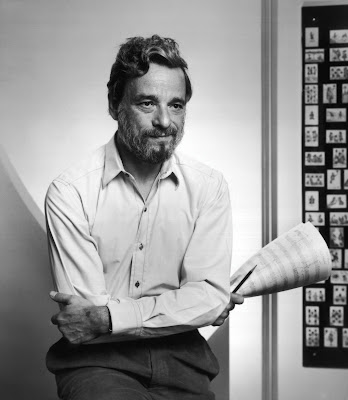 Sondheim? Most people in politics, we suppose, would look at you somewhat quizzically at the mention of his name. But political junkies and politicians could learn a lot from legendary Broadway composer Stephen Sondheim, who recently passed away.
Sondheim? Most people in politics, we suppose, would look at you somewhat quizzically at the mention of his name. But political junkies and politicians could learn a lot from legendary Broadway composer Stephen Sondheim, who recently passed away.Sondheim left vivid lessons for politicos in the way he lived his life -- through his values and the things he found important. Here are some Sondheim credos that every pol and every campaign can benefit from:
1) Less is more.
If you've gotten your point across, don't oversell the message. Keep is short and direct. In so doing, your message is more likely to be remembered and maybe even taken to heart. Put another way: Stand to be recognized; speak to be heard; sit down to be remembered.
2) Content dictates form.
What you're saying should determine how you say it. The way you say it, the context in which you say it, the audience you chose to deliver it to, the setting and the emphasis you choose to place on the message are all determined by the content of the message itself.
3) The devil's in the details.
If you don't do details well (or don't have the time for them) delegate the details but pay attention to them nonetheless. Botched details can upend your whole campaign and cost you the election. Plus, getting the details right will free you to succeed at the Big Things.
4) Be prepared to kill your darlings.
You may have favorite themes, favorite ways of saying things even favorite people you like to have as part of your team. That's fine. But you must be prepared to jettison any of these if things aren't work out. Adapting also means shedding what isn't working.
5) Work very, very hard.
Over a span of nearly 70 years Sondheim worked relentlessly and produced a staggering catalogue of work. If you want to reach the top and be at the top of your game, you've gotta work hard every day. There's no magic to it. Succeeding is grueling and also involves sacrifice!
Finally, though Sondheim doubtless held liberal political views (Broadway is Broadway) he apparently never felt a need to preach those views either through his art or in his public pronouncements. To the extent that political leanings are expressed in his works they are expressed through the characters and within the context of the stories for which he composed the music and lyrics. He was not a librettist so he didn't write the stories. In many ways he seemed to take a libertarian view. He wasn't one top inflict his politics on the public a la Springsteen or De Niro. He simply seemed to take a "live and let live" approach to things. His comprehensive two-volume set of lyrics and memories of his shows contains no references to his private affairs or his politics that we're aware of. That's refreshing!
No comments:
Post a Comment